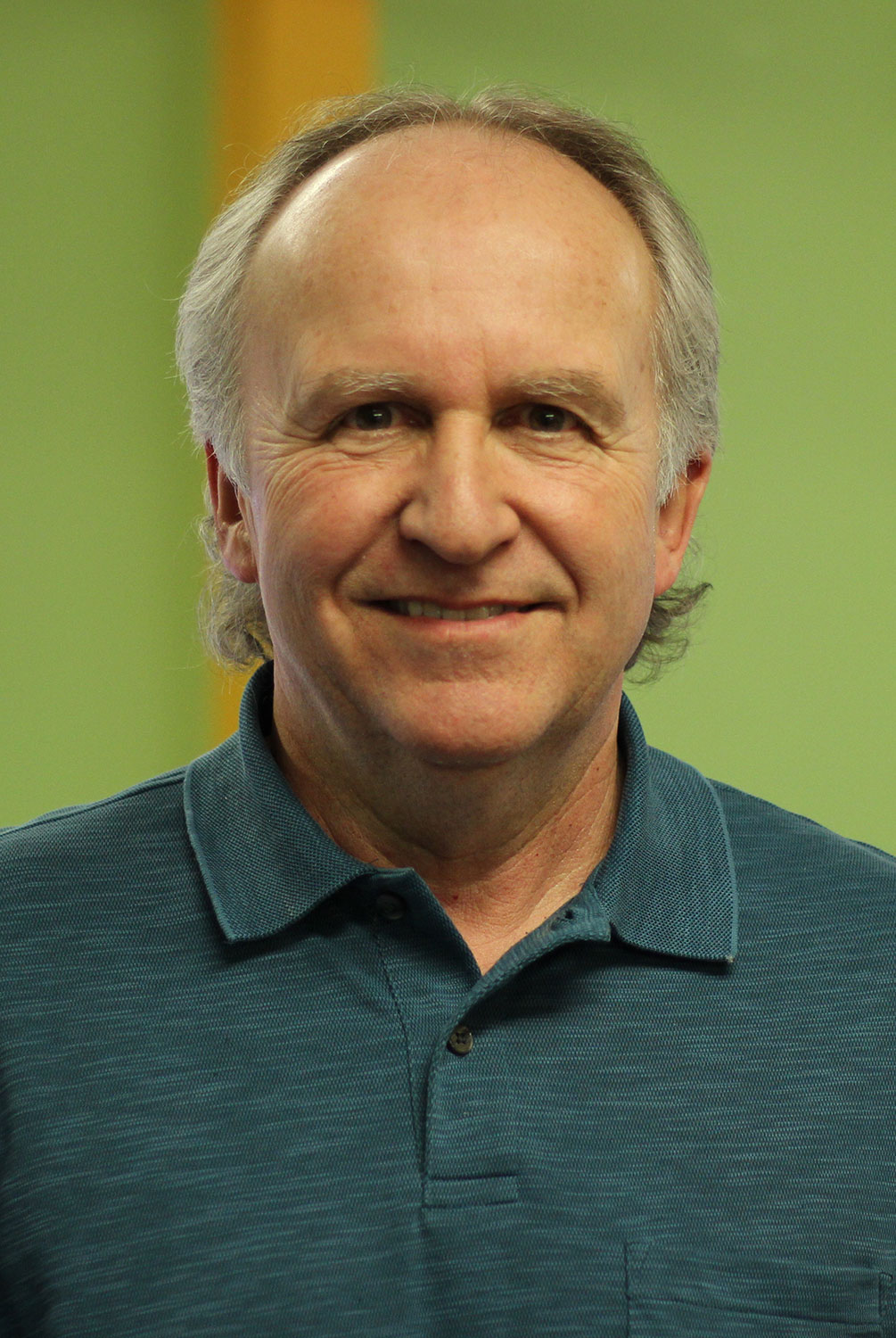
Step Up To Quality Stories
Men, Be Like Mike: Become an Early Childhood Teacher
As early childhood educators know, young kids are awesome.
“They’re funny, interesting, honest, innocent, and you get to watch them change right in front of your eyes,” said Mike Stiehl, a Step Up to Quality coach who has been in the profession for 40 years.
So why aren’t more men like Mike becoming early childhood teachers?
Stigmas and Stereotypes
As gender roles and societal notions change, many professions that used to be seen as men-only have been equalizing and now have a more balanced representation, like accounting and law.
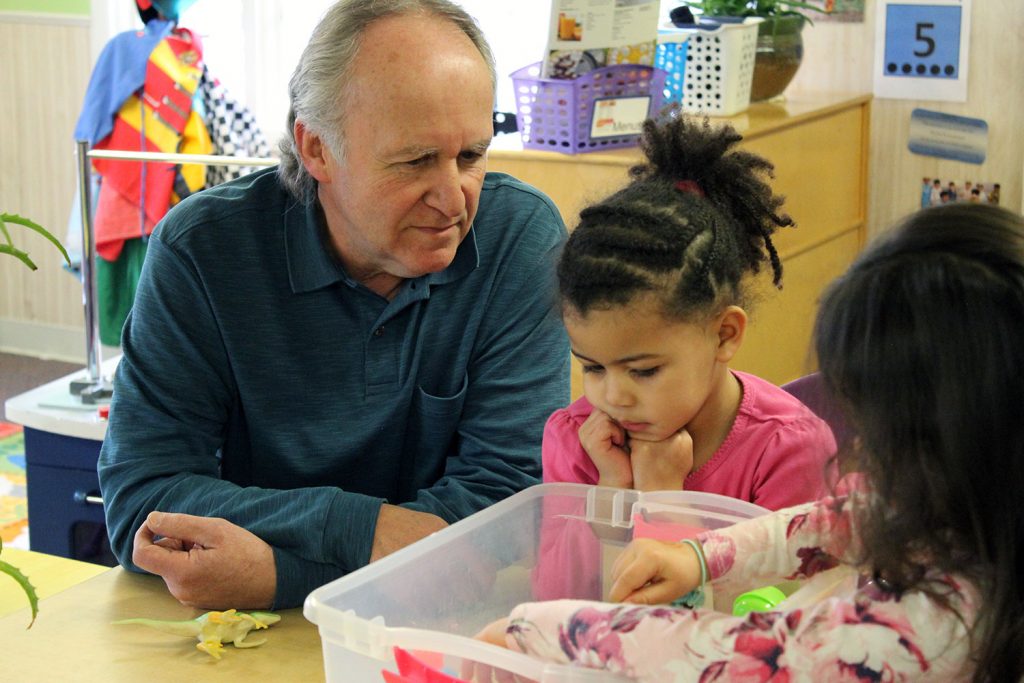
But men have been less likely to pursue what had previously been done by mostly women, like teaching. And even less so, early childhood education, where just 2.3 percent of all teachers are men.
Experts cite several reasons for the lack of men in early childhood education:
- Role models. Specifically, the absence of them. If boys don’t see any male teachers, they might grow up thinking that it isn’t an option for them.
- Status. Early childhood education as a field has been gaining more recognition recently, as research and data proves the importance of learning during the early years of a person’s life. But even today, the term “day care worker” is still frequently used, rather than the preferred “early childhood educator” or simply, “teacher.”
- Pay. It’s the far-and-away number one reason why more men are not choosing to be early childhood teachers.
“The tough reality is that you can probably make more money at your average retail store than as an entry-level pre-school teacher,” Mike said.
Storytime
Forty years ago, Mike had just gotten out of the military and was wondering what to do with his life. When Mike was 12 years old, his mom taught at an early childhood care center and he loved helping her out. His brother was born at around that same time, and Mike also helped out with the baby.
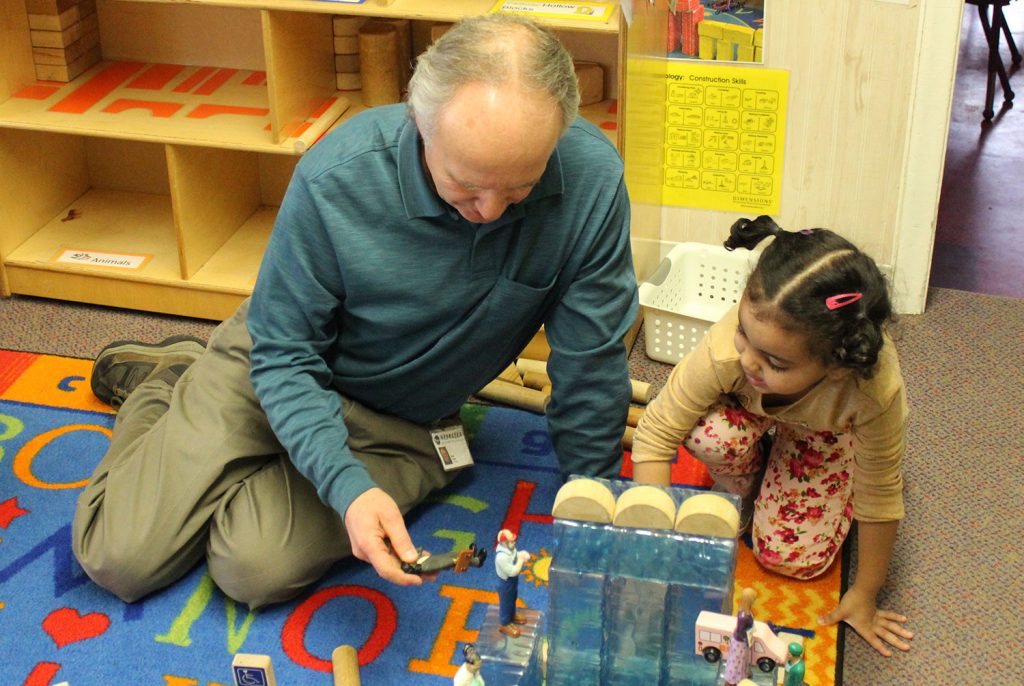
“I always trace my interest in early childhood education back to those two things,” he said.
He earned a physical education degree from Bellevue College (now Bellevue University). As part of his degree program, he student-taught first graders, which ended up not being the right fit.
“First graders are kind of set in their ways and do most things for themselves,” Mike said.
He ended up getting a job at a child care center, driving their van. After several months, they asked him if he wanted to move into a classroom teaching toddlers.
“I think they thought, ‘this guy is kind and nice and seems to like being around kids, let’s give him a chance,’” he said.
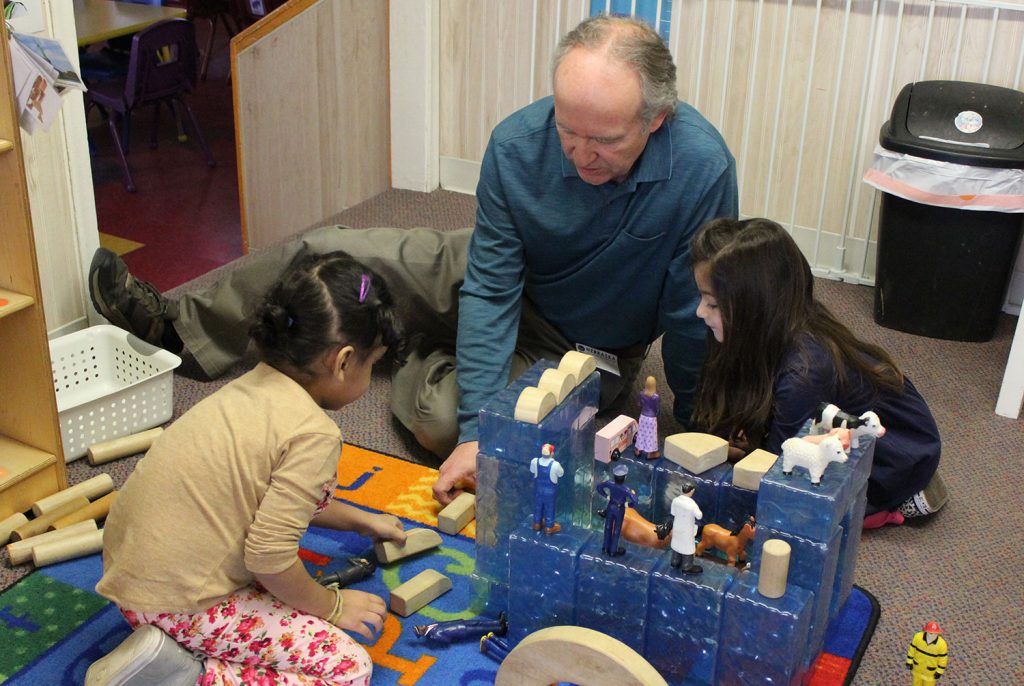
Toddlers ended up being a little too young for his teaching preferences, so he moved to the preschool room, where he clicked with the four-year-olds. He stayed for five years, until he moved to a different center where he taught four-year-olds for another decade.
“They know just enough to take care of their basic needs, but still need to learn about getting along with others, and taking care of each other. Teaching them how to solve problems, and regulate emotions and behaviors, is extremely rewarding,” he said. “I just knew this is what I was meant to do.”
But things like low pay and minimal benefits were hurdles he had to overcome. He kept part-time jobs to help supplement his income, and he freely admits that if he had a family to help support at that point in his life, he might have had to switch professions.
A Career Path
After 15 years in the classroom, and taking training all along the way, Mike decided he wanted to share his experience with other educators. He landed at Iowa Western Community College, teaching future teachers.
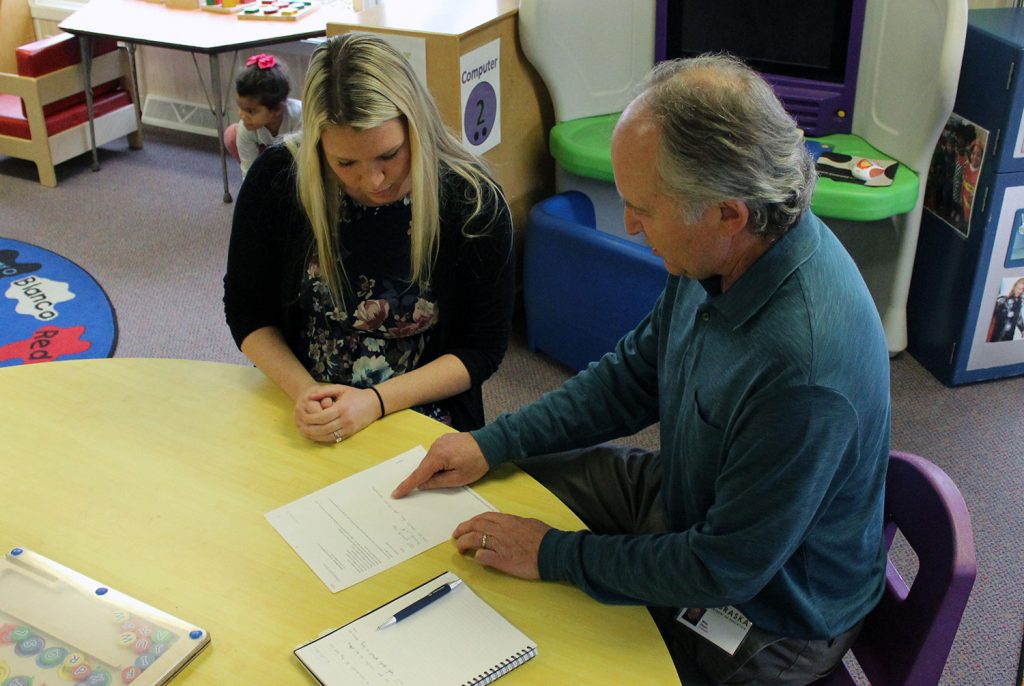
“It turns out that from a learning perspective, adults and kids aren’t all that different,” he said.
And, he wasn’t far from early childhood education classrooms – Iowa Western has an on-site child care center where students teach. Mike’s wife is currently the director of that center.
After 20 years at Iowa Western, he noticed that Nebraska was prioritizing early childhood education more than ever before.
“I wanted to get out in the community, and Nebraska was making noise in the early childhood education world that I wanted to be a part of,” Mike said.
In addition to coaching seven Step Up to Quality providers, Mike is currently an adjunct instructor at the University of Nebraska Omaha and at Iowa Western, he teaches the Early Learning Guideline Series, and also substitute teaches about once a week for the Nebraska Early Childhood Collaborative.
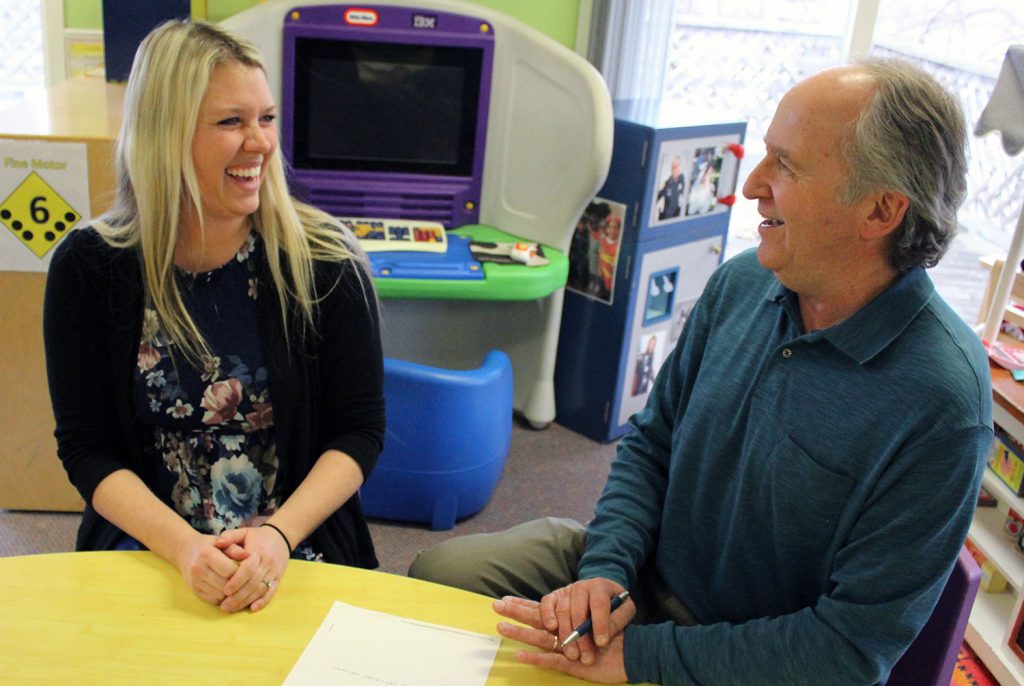
Even though as a man he is still a rarity among his early childhood education colleagues, he said he’s had a lot of support throughout his career, from mentors to parents to the kids themselves.
“Everyone has recognized I was there for the right reasons. I simply love being around children more than being around adults,” he said. “I was doing what I needed to be doing, and getting fantastic results.”
